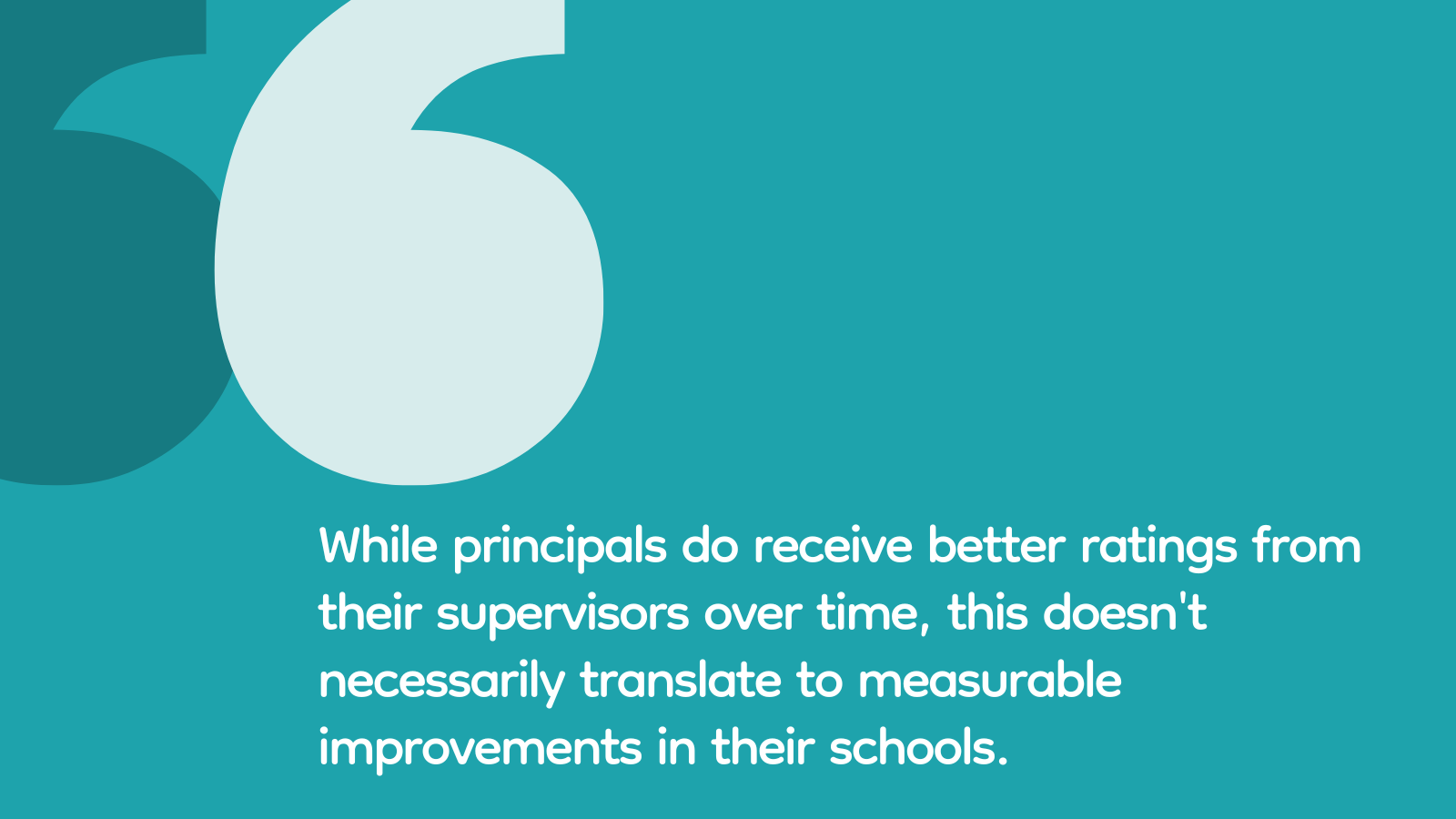
We often assume that the longer someone works in a role, the better they get at it. This is a pretty easy assumption to make for teachers—don’t we all remember that exponential increase in skills from our first to second year of teaching? Experience is also frequently seen as a critical factor in school leadership. We expect that as principals gain more experience, they should become better at leading schools, improving both student outcomes and teacher retention. But what if that’s not always the case? New research challenges this assumption, suggesting that more experience doesn’t always translate to boosting school performance.
Principal experience doesn’t boost school performance
A comprehensive study by Brendan Bartanen and colleagues explored whether school principals improve with experience and, in turn, whether their schools benefit from their growing expertise. Surprisingly, their research found little evidence that student outcomes or teacher retention rates improved as principals gain more experience. While principals do receive better ratings from their supervisors over time, this doesn’t necessarily translate to measurable improvements in their schools.
Key findings from Bartanen et al. (2024):
- Student outcomes remain static. The study found no significant improvement in student test scores or attendance rates as principals gain experience, challenging the assumption that more experienced principals naturally lead to better academic results.
- Teacher retention doesn’t increase. There’s also no clear evidence that experienced principals are better at retaining teachers. In some cases, teacher turnover even slightly increased with principal experience.
- Supervisor ratings improve, but teacher ratings decline. While principals received higher ratings from their supervisors as they gained experience, teachers tended to rate their principals lower over time, particularly those who had not been hired by the principal.
- Experience doesn’t improve hiring practices. Principals did not show significant improvement in hiring more effective teachers as they gained experience. In fact, they tended to hire less experienced teachers over time.
Can we trust this research?
Not all research measures up equally! Here’s what our We Are Teachers “Malarkey Meter” says when it comes to this publication based on four key factors.
- Peer-reviewed? Yes! This study went through a rigorous peer-review process. I’m sure there were many rounds of back-and-forth!
- Sample size: The study used large-scale panel data from Tennessee, New York City, and Oregon, covering a wide range of thousands of schools and principals. The large sample size strengthens the findings’ credibility—initially, I questioned if they were U.S.-wide, but they’re diverse!
- Trustworthy sources: The researchers involved (Brendan Bartanen, David D. Liebowitz, and Laura K. Rogers) are established in the field of educational leadership and policy with nearly 2,500 citations. The study was published in a well-respected academic journal, the American Educational Research Journal. Many researchers dream of getting published in AERJ!
- Methodology: The study used advanced statistical techniques, within principal fixed effects models, to analyze how experience impacts school outcomes over time. Basically they compared each principal’s performance at different career points, isolating experience effects and avoiding influences from other principals or schools. The study noted that measuring certain principal skills, like directly influencing teacher and student outcomes, was particularly challenging. The researchers did the best they could with the data they had!
What does this mean for teachers?
Laura Rogers provided this quote for the We Are Teachers team:
The research is clear that teachers get better as they gain experience in their jobs. Their students achieve more. We don’t observe the same relationship for principals. As principals gain years of experience, their supervisors’ evaluation ratings increase, but we don’t see those same returns in improved school outcomes like teacher retention or student achievement.
This doesn’t mean principals aren’t improving in some areas or that they don’t play a crucial role—they do. But there seems to be a disconnect somewhere. For teachers, the stability and improvement expected with a principal’s experience may not always boost school performance. Until we better support principals, high principal turnover—and likely high teacher turnover—may remain an ongoing problem, noted Rogers. This highlights the importance of advocating for better support systems not just for teachers but for school leaders as well.
In the end, this research gives us a lot to chew on. If you’ve been thinking that your seasoned, “good ole boy” principal down the road ensures school success, reconsider that assumption. While we value the effort and experience principals bring, this study shows longevity doesn’t necessarily equal effectiveness. Schools need leaders who continuously adapt, grow, and innovate. So while experience is valuable, it’s clear that just like our students, principals might benefit from a little homework too.

